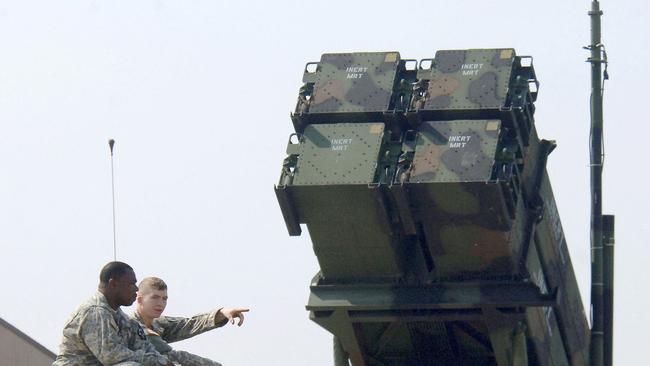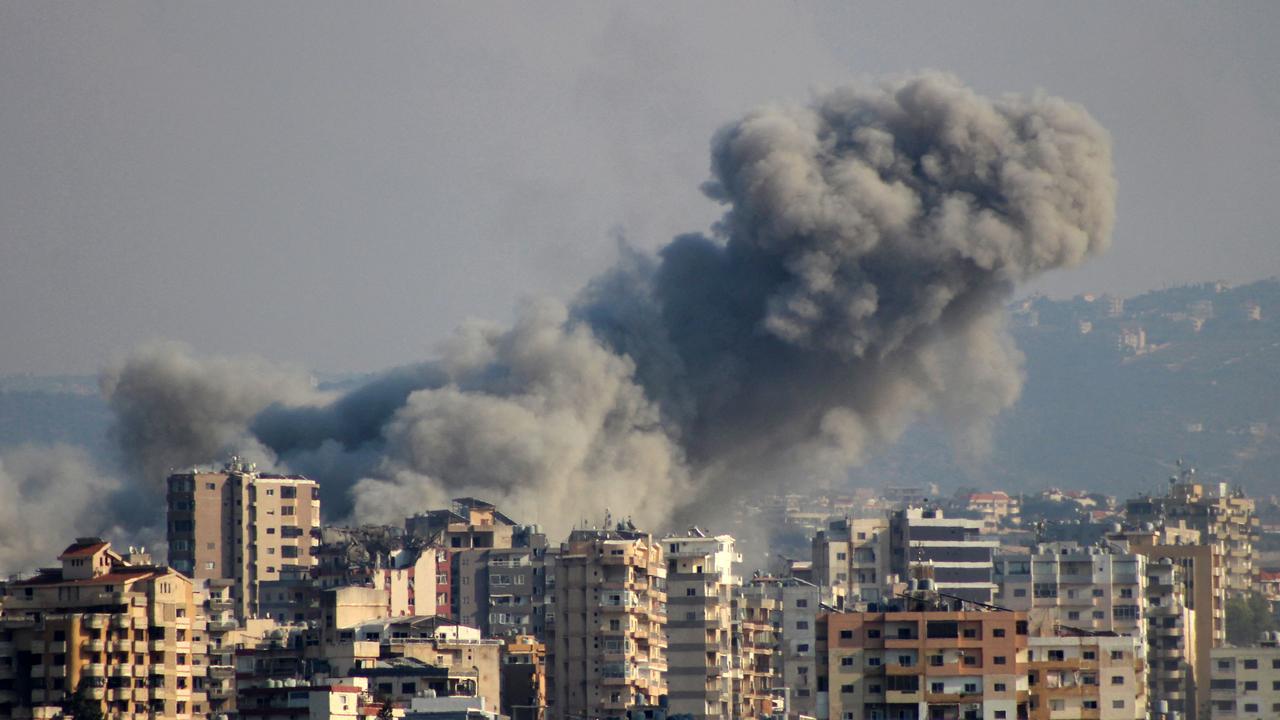Japan to send US missiles, boosting global supply
Tokyo breaks from longstanding weapons-export restraints and looks to add dozens of interceptors to American stockpiles.

Japan will provide Patriot missiles to the US, bolstering global stocks as Ukraine defends itself from a new wave of Russian missile attacks, the US and Japanese governments said.
Tokyo is set to transfer dozens of the interceptor missiles, which are used to shoot down ballistic missiles and other aerial threats, from its own supplies, starting as early as the first quarter of 2024, according to a US official.
The decision is a landmark for Japan, which has had a self-imposed ban on weapons exports for decades as a legacy of its desire to stay out of global conflicts following World War II.
The war in Ukraine and Tokyo’s concerns about China and North Korea have prompted a rethink in Japan about its contribution to international security. On Friday, the Japanese government said it would loosen controls on defence exports to allow weapons made in Japan under license to be sent to the license-issuing country.
Japan’s Mitsubishi Heavy Industries makes Patriot missiles under license from US defence contractors Lockheed Martin and RTX, formerly Raytheon Technologies.
White House National Security Adviser Jake Sullivan said in a statement the transfer would contribute to peace and stability in the region by ensuring US forces can maintain “maintain a credible deterrence and response capability.” Japanese government spokesman Yoshimasa Hayashi said the move would strengthen the Japan-US alliance.
Kyiv has stepped up calls for air defence support from its allies as Russia begins a fresh winter offensive against Ukrainian infrastructure using cruise missiles and ballistic missiles.
Five Patriot batteries from the US, Germany and the Netherlands provide Ukraine’s most effective layer of defence against ballistic missiles, but stocks of the interceptor missiles, which can cost millions of dollars each and take years to make, have been stretched by Russia’s sustained attacks.
The impact of Japan’s shipments will depend on how many missiles the US in turn provides to Ukraine. Lockheed Martin makes around 550 Patriot interceptor missiles each year, which are also deployed in the Middle East and the Asia-Pacific region.
A Japanese defence official said the timing and scale of the missile transfer has yet to be worked out. Tokyo said there would be no degradation of its ability to defend itself from ballistic missiles from North Korea or elsewhere.
Rahm Emanuel, the US ambassador to Japan, said Friday’s decision showed Tokyo’s commitment to supporting international security, coming after Japan’s decision to sharply raise military spending and deepen a defence partnership with South Korea.
“It helps us manage our inventory of Patriots, given Ukraine and the Middle East, with a little more flexibility and strategic deployment,” Mr Emanuel said.
Members of Japan’s coalition government have been debating changes in defence export rules for months, with some wary of antagonising China or eroding the pacifist principles of Japan’s post-war constitution.
Japan still bans the shipment of weapons to countries involved in a conflict, meaning it can’t send Patriot missiles directly to Ukraine.
South Korea has weapons-export restrictions that are similar to Japan’s, but Seoul agreed to provide hundreds of thousands of artillery shells to the US to increase supplies to Ukraine. Japan and the US have discussed the possibility of a similar arrangement to supply Japanese-made artillery shells, but the talks haven’t progressed far.
Since Russia’s full invasion of Ukraine, Japan has provided some modest military support to Kyiv, including helmets and bulletproof jackets. On a visit to Hiroshima in May for a Group of Seven summit meeting, Ukrainian President Volodymyr Zelensky refrained from including Japan in his calls for military support.
Ukraine wasn’t mentioned in the Japanese government statement about Patriot exports. Instead, Tokyo officials said the move would bolster Japan’s alliance with the U.S. and underpin regional security.
Nonetheless, security analysts said it showed Japan is willing to find new ways to play a bigger role in international security.
“This is a significant step for Japan, one that reinforces its commitment since the war began to support Ukraine’s defence,” said Christopher Johnstone, a former US National Security Council official now at the Centre for Strategic and International Studies in Washington.
Japan has also been building closer security ties with some Asian countries as a bulwark against China, while trying to foster growth in its defence industry. Last week, the Philippines installed a radar system provided by Japan that will help Manila monitor Chinese ships and airplanes following clashes in the South China Sea.
Peter Landers and Gordon Lubold contributed to this article
The Wall Street Journal


